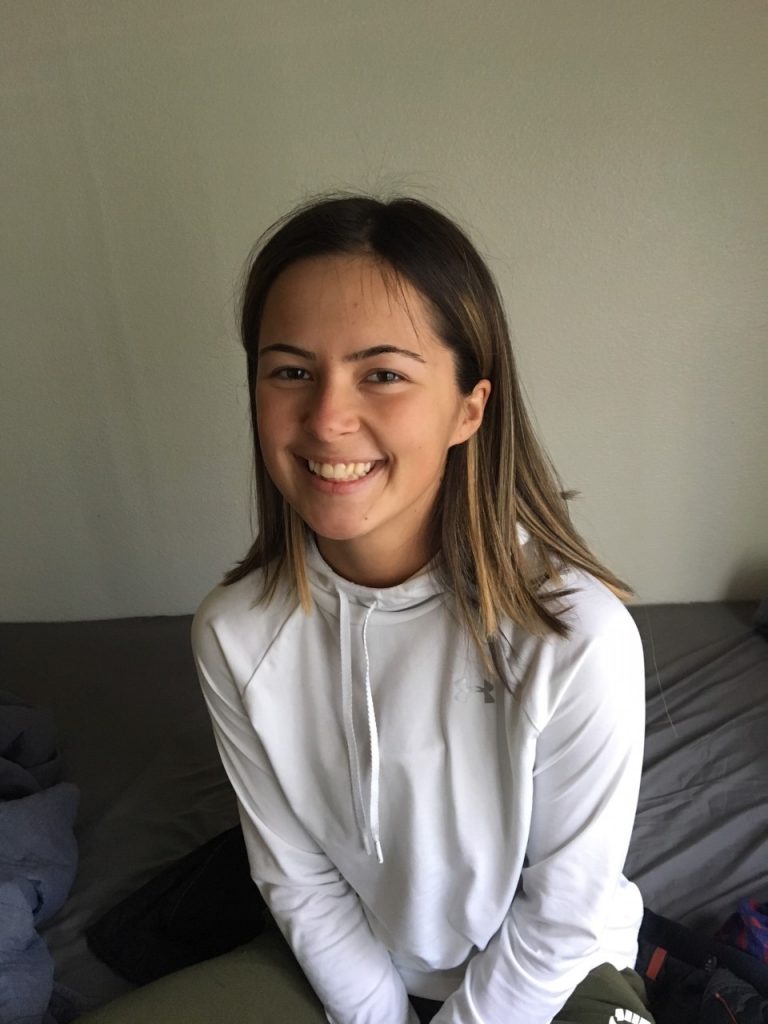Victoria Lynn Garsow is just one person among many who have come out as being bisexual
Ignoring that you think you might be gay does not make the feeling go away (00:43)
Courage is something Victoria has had to develop because she has faced discrimination for trying to be herself
Today, people like Victoria still face hatred just for being different from the norm
Openly admitting who you really are is not easy for a lot of people including Victoria
Reacting in a positive way when someone tells you they are bi helps them know it is not something to be ashamed of
Integrity: what we lose when we forget to think of the consequences of our actions towards others
Adjusting to the way people think of you was not something that came easy to Victoria because she felt she had to present herself in a certain way
Lots of people Victoria states, do not act out of anger towards homosexuality but out of ignorance (19:03)
Yelling derogatory terms at someone makes them scared to express who they really are (9:08)
Negligence is common with people in positions of authority if they do not as Victoria stated,”think and act with empathy towards other people” (20:42)
Not only can Victoria’s story apply to other people trying to come out but to anyone facing adversity
Gossiping about other people’s differences, like sexuality, is still wrong even if it is not said straight to their face (12:22)
Accepting the fact that you cannot control who you love is like accepting the fact that you cannot control what people think of you (17:39)
Realizing that a relationship with God does not depend on your sexuality is something Victoria has come to understand (5:30)
Standing on a stage, as Victoria does, in a theater production helps her embrace her individuality
Ostracizing has occurred in societies that refuse to accept others for who they are but when stories like Victoria’s are told it makes it that much harder for people like her to be excluded
Whenever you meet someone like Victoria she is an example of how one rock can create a ripple effect

I interviewed my roommate Victoria Garsow on February 28th, 2019, in the apartment in which we live. Victoria is different from me in the fact that she is bisexual. She is a freshman theater major here at UMKC and an aspiring high school theater teacher. She was born in Belton, Missouri and is currently eighteen years old. Victoria states that she grew up in a very conservative family but that they were really supportive when she came out as bisexual. In writing this poem I wanted to highlight how certain people are not accepted in this world because of certain differences. I used Victoria’s full name to make my acrostic poem to show that the people who are affected by discrimination are regular people and have a name just like any other person. I have only known Victoria a little under eight months. I am very appreciative of this interview because we have grown closer because of it and now I understand more of what she has been through. Before talking with her I really did not know what people went through when they came out as bisexual. My poem is not just inspired by Victoria’s story but by all individuals who face discrimination on a daily basis.
Another influence that I had while writing this poem was Alain Resnais’s 1955 film Night and Fog. My poem relates to the film because Alain Resnais wanted to make a film with a theme that could be applied to other situations not just those within the Holocaust. For my poem, I too wanted a theme that could be applied to not only one individual but to society as a whole.
Some of the words that I used in my poem were from the interview that I conducted with Victoria. I included the word ignoring because when Victoria first started having feelings for a girl, she tried to ignore them. She acted like the feelings were not there but that obviously did not make them go away. The word ignorance is used because when I asked what advice Victoria would give someone in a similar situation she said, “I would say have patience because whenever people act out with things such as being angry at homosexuality, I feel like they aren’t actually acting out of anger but out of ignorance.” (19:03) Some people have certain thoughts without even knowing why and they simply do not understand someone that is different from them. In my interview, I asked Victoria to describe a specific incident in which she felt unsafe or unwelcome at some point in her life because of being bisexual. She described a time when a guy in her high school was yelling derogatory terms at her as she was walking down the hallway, and that is why I included that in my poem (9:08). I used the word gossiping because Victoria has worried and still does occasionally about people talking bad about her behind her back. She stated this: “What if people are thinking mean things, they just aren’t saying them?” (12:22) Obviously, that is a justified comment because we are all at fault for talking about someone behind their back at some point in our lives although that does not make it right. One of my favorite things that Victoria stated in the interview was, “I always thought that yeah you can control who you love but yeah no you can’t control who you love.” (17:39) The reason I like this quote so much and why I put it in my poem is because it is such a true statement for any individual whether they are gay or straight. When talking about homosexuality, someone’s relationship with God is something that gets brought up. A lot of the time people who are gay are not welcomed by their religion because that religion does not accept them. Victoria faced this issue and says, “So, I kind of struggled with my image there, where I was like have I lost my faith, or am I not a Christian anymore because I am gay? Which that is not true because you can still be a Christian and have feelings for someone of the same sex.” (5:30)
The last thing I would like to explain is when I put in the word negligence. I asked Victoria if she believed society could become more tolerant. She is talking about political figures when she states, “I feel like if we do get other people in power that genuinely love America and genuinely love everybody as a whole, who think and act with empathy towards other people then hopefully we will become more tolerant.” (20:42) This answer is very important because when it comes to people in power making decisions out of hate instead of having love for everyone this is what is leading America in the wrong direction. It would be very sad and disappointing after all the progress that has taken place with people accepting individuals in the LGBTQ community for someone in power to come along and take all that away.
As I have stated before I have not known Victoria that long, but I can say that we have become such amazing friends in this short amount of time. Based on my participant observation while living with her, I have realized that she is truly one of the nicest, funniest, caring, and most accepting people I have ever met.



